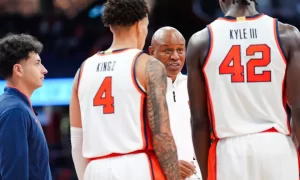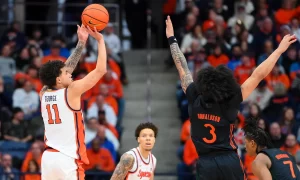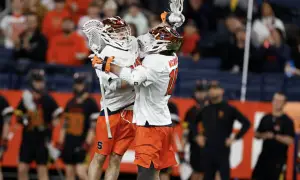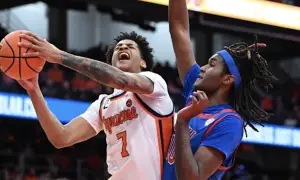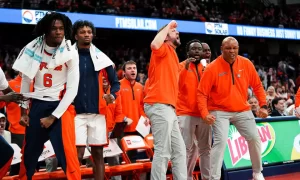The warning from the White House to stall the Washington Commanders’ stadium deal unless the team reclaims its old team name has pushed a long-running branding dispute back into the national spotlight. The team’s future home, already a subject of political negotiation and public debate, now carries an additional condition that could shift momentum for one of the most expensive redevelopment projects in D.C. history.
Platforms that review Bitcoin betting sites point out how fast-changing off-field developments can ripple through betting markets. When political comments begin to influence public perception, futures odds, or team morale, crypto’s speed, privacy, and borderless accessibility give bettors the tools to react in real time. That flexibility can matter when a controversy emerges without warning, especially one that could affect stadium financing, sponsorships, or fan engagement.
The Commanders’ current stadium situation has been a year’s-long headache for ownership and city officials. The $3.7 billion redevelopment plan centers on the RFK Stadium site and includes housing, park space, and entertainment venues. It cleared a significant hurdle when the D.C. Council voted 9-3 to advance the proposal, a step seen as a major victory for both the city and the franchise thanks to preliminary council approval. That momentum now faces a new challenge, as the President’s comments inject identity politics into a process already shaped by complex negotiations over land use, funding, and infrastructure.
Native American groups quickly condemned the suggestion to bring back the former name, calling it a divisive and unnecessary obstacle to progress. In a recent statement, two prominent organizations argued that the focus should remain on the stadium project’s economic and community benefits rather than reigniting a controversy that sparked the rebrand in 2020. Their criticism underscores how easily cultural debates can derail even the most carefully balanced development agreements.
The ownership group, led by Josh Harris, has not directly addressed the remarks, instead emphasizing ongoing efforts to secure the best possible deal for the team and the city. Still, insiders acknowledge that political pressure could affect the pace of talks. Stadium projects of this scale rely on a mix of public and private investment, corporate partnerships, and municipal approvals. Any controversy that risks alienating key stakeholders—from naming-rights sponsors to local community boards—can slow or even stall progress.
Fans remain split. Some still wear vintage merchandise and see the original name as part of their identity as supporters. Others believe the switch to “Commanders” was necessary to align the franchise with modern standards and to respect the voices of those who viewed the old name as harmful. That divide adds another variable to the stadium debate: whether public opinion will influence decision-makers more than private negotiations.
The D.C. Council’s earlier approval came only after months of discussions over labor protections, environmental safeguards, and land-use conditions. Concessions on these points helped push the project forward, and altering the agreement now could require reopening those talks. In large-scale developments, reopening settled terms often delays timelines by months or even years. Political friction on top of that could further complicate the process.
For bettors, the story extends beyond whether the name changes again. Oddsmakers might not post direct wagers on team branding, but public perception and off-field distractions can influence performance-related markets. If the controversy lingers into training camp or the regular season, it could subtly shift projections for attendance, player focus, or even divisional standings. Those watching the markets closely—particularly through crypto-friendly platforms—may be able to respond faster to any movement tied to the situation.
The Commanders’ path forward will be shaped as much by backroom conversations as by public statements. In Washington, football has always been about more than just the game; it’s about identity, history, and the political and financial forces that decide where and how the team takes the field. This latest twist shows how quickly those forces can collide, and how the outcome of an off-field debate might leave a mark on the scoreboard in unexpected ways, much like other college football news shaping the sport beyond the field.



